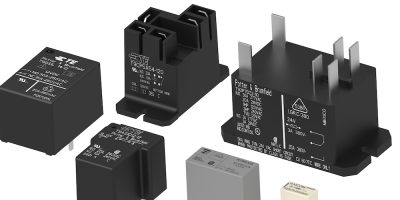Relay is certified for use with A2L refrigerant gases
TE Connectivity has announced component certification for its industrial relays series which will help ensure HVAC manufacturers can meet new requirements for eco-friendly equipment.
Some of the company’s most popular industrial relays series have been certified and approved for use in HVAC equipment that uses A2L mildly flammable refrigerant gases which is replacing HFC gases in residential HVAC units.
Although HFC is being replaced for environmental reasons, A2L gases are more flammable which means a review of all HVAC system components. Those certified to UL 60335-2-40 A2L will comply for HVAC equipment design. TE said it is one of the first component manufacturers to receive this UL approval.
The certification applies to its T9G relay series, the Potter & Brumfield T92, T9A, T9C, SCHRACK RT, P2, and AXICOM IM relay families. (TE is confident that its ORWH and OJS relay series will earn certification soon.)
A2L refrigerant gases have lower global warming potential (GWP) than the legacy HFC gases, such as R-410A or freon that have been in use for decades. As part of the American Innovation and Manufacturing (AIM) Act of 2020, the US Environmental Protection Agency (EPA) developed regulations and a schedule for reducing HFC refrigerant import, production, and consumption. “Non-ozone depleting” refrigerants, such as those classified as A2L, are acceptable but integrating A2L gases into HVAC systems has posed engineering challenges.
TE’s T9G relays has been available for five years and HVAC manufacturers already using the relays (or the T92, T9A, T9C, RT, P2 or IM models) do not have to reconfigure designs to make room for a UL-certified component.
“There is no need for manufacturers to change their bill of materials,” says Brian Lineberry, senior field application engineer. “HVAC manufacturers can keep using the approved relays they have in place today and rest assured knowing they are UL A2L certified.”
Additional relay families that are pending certification include ORWH and OJS.




